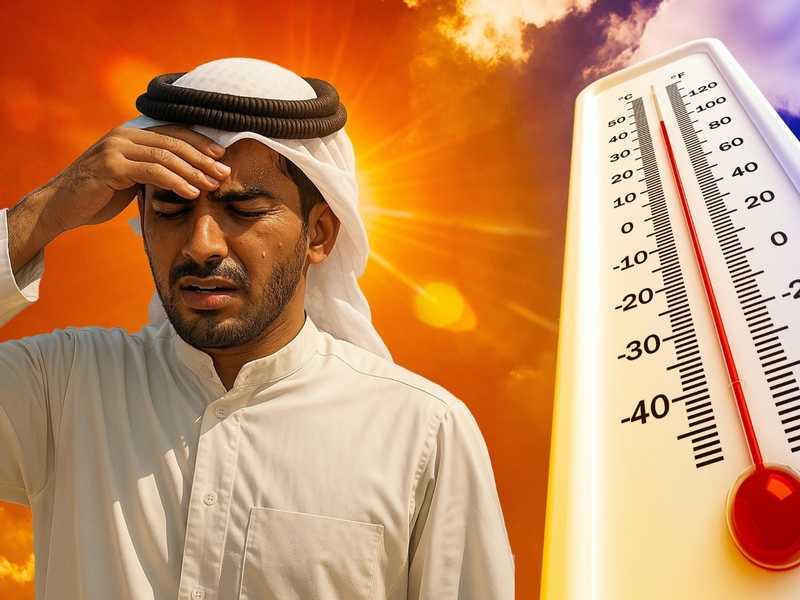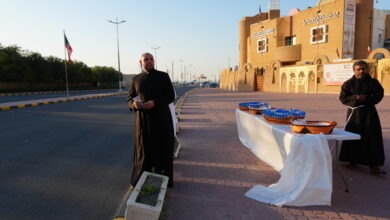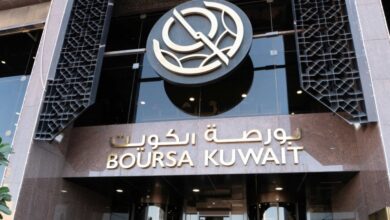Kuwait records world’s highest temperature at 49°C
Meteorologist Fahad Al-Otaibi emphasized that planting trees is the quickest and most effective way to reduce temperatures in Kuwait’s desert environment, as blocking sunlight or dust is not possible.

• Meteorologist Fahad Al-Otaibi said that the dust affecting Kuwait primarily comes from the north and southwest, highlighting the urgent need for indoor afforestation and emphasized that planting trees in residential areas and along sidewalks can lower temperatures by 3 to 8 degrees Celsius while also reducing dust levels.
Meteorologist Fahad Al-Otaibi stressed the importance of improving vegetation cover in Kuwait due to its desert environment. He pointed out that planting trees is the fastest and most effective way to reduce temperatures, as blocking sunlight or dust is not feasible, according to Al Qabas.
Al-Otaibi said that the dust affecting Kuwait primarily comes from the north and southwest, highlighting the urgent need for indoor afforestation. He emphasized that planting trees in residential areas and along sidewalks can lower temperatures by 3 to 8 degrees Celsius while also reducing dust levels.
Sweltering summer
Al-Otaibi emphasized the growing importance of afforestation, especially as Kuwait recently recorded record-high temperatures, with the Mataraba station registering the highest temperature in the world at 49°C. This highlights the urgent need to increase green spaces to mitigate extreme heat, improve air quality, and combat the sweltering summer.
He also pointed out that afforestation brings economic benefits, including reduced costs for removing sand accumulated by sandstorms. He stressed the need to prioritize afforestation in new residential areas from the outset, as it plays a crucial role in combating desertification and sand encroachment.
Al-Otaibi concluded by citing China’s successful transformation of a city into a green cover, expressing belief that Kuwait can implement a similar model through collaboration among various stakeholders, leading to both environmental and economic benefits.
Activists said that trees are dying due to neglect, emphasizing that vegetation is vital for moderating the climate and reducing pollution. Calls are growing for more tree-planting initiatives, with a push for youth, school, and university students to participate in environmental campaigns by planting trees along streets and roads.
They pointed out that the continued death of trees on streets wastes public funds, as relevant state agencies fail to monitor and maintain vegetation. Al-Qabas observed the ongoing issue of tree deaths, including palm trees damaged by weevils, indicating a lack of oversight and proper care.
Environmental activists said that Kuwait, under international agreements, is obligated to nurture vegetation and develop a practical greening plan to address climate change and reduce harmful emissions. They highlighted the importance of maintaining green spaces and encouraging citizens to cultivate home gardens.












